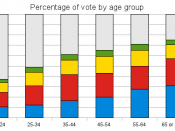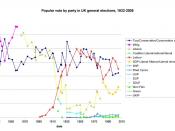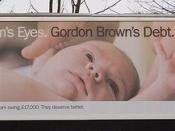There is no single reason to explain why we vote the way that we do, the best we can do is to spot trends and patterns which can be generalised to explain the often irrational behaviour of the electorate. This is a statement psephologists, such as, John Curtice, Anthony Heath and Ivor Crewe believe in.
Social Class can be said to be the most important and most common factor used when analysing voting behaviour or in other words people will vote for the party they feel best represents their class. The traditional view has been that the working classes have been inclined to vote Labour and the middle and upper classes have tended to vote Conservative. Evidence of this view can be drawn from the 2001 general election as Conservative received 40% of votes from class AB, whereas Labour received only 33%. In class DE Labour received 50% of votes whereas Conservative received only 27%.
This pattern was also the case in previous elections. Although class can be said to be "the basis of British politics", stated by Peter Pulzer (political commentator), the situation seems to have changed, as class party ties have weakened since 1970.
Commentators also point out that geographical influences are a large and can be said to have replaced social class when analysing voting behaviour. There has been a traditional North South split in the UK between Labour and Conservative for many years. Since 1970 support for parties has not swung purely on a national scale but between regions as well, for example, Scotland for Labour and South West and East for Conservative. In the 2001 General election Labour received 82% of votes in Scotland and Wales, and Conservative received just 3%, whereas in the South East Conservative received 56% of votes and Labour received...


